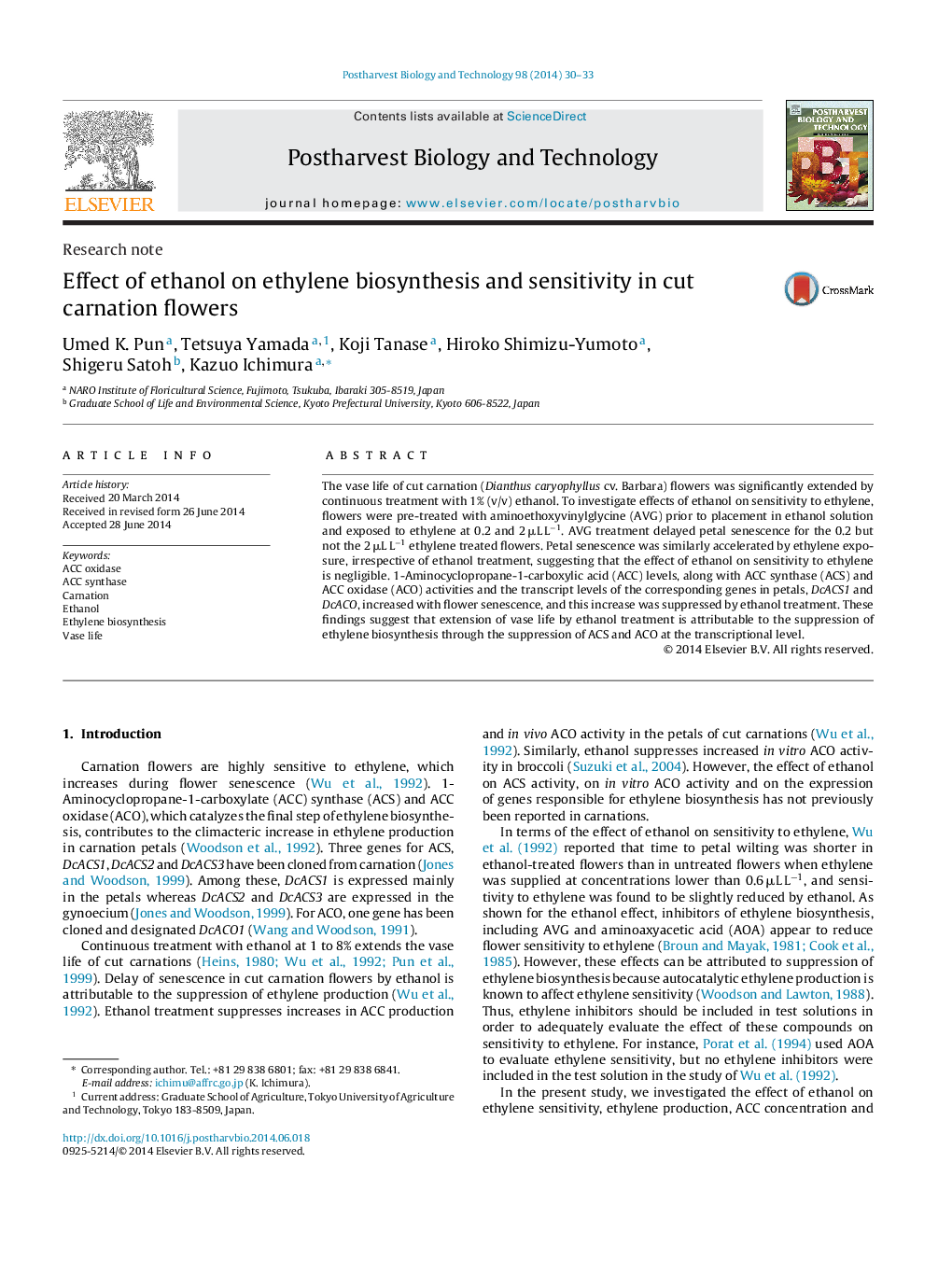| Article ID | Journal | Published Year | Pages | File Type |
|---|---|---|---|---|
| 4518237 | Postharvest Biology and Technology | 2014 | 4 Pages |
•Treatment with ethanol significantly extended the vase life of cut carnations.•The effect of ethanol on sensitivity of ethylene was negligible.•Ethanol treatment suppressed increase in ACC synthase and ACC oxidase activities in the petals, which was associated with suppression of DcACS1 and DcACO1 expression.
The vase life of cut carnation (Dianthus caryophyllus cv. Barbara) flowers was significantly extended by continuous treatment with 1% (v/v) ethanol. To investigate effects of ethanol on sensitivity to ethylene, flowers were pre-treated with aminoethoxyvinylglycine (AVG) prior to placement in ethanol solution and exposed to ethylene at 0.2 and 2 μL L−1. AVG treatment delayed petal senescence for the 0.2 but not the 2 μL L−1 ethylene treated flowers. Petal senescence was similarly accelerated by ethylene exposure, irrespective of ethanol treatment, suggesting that the effect of ethanol on sensitivity to ethylene is negligible. 1-Aminocyclopropane-1-carboxylic acid (ACC) levels, along with ACC synthase (ACS) and ACC oxidase (ACO) activities and the transcript levels of the corresponding genes in petals, DcACS1 and DcACO, increased with flower senescence, and this increase was suppressed by ethanol treatment. These findings suggest that extension of vase life by ethanol treatment is attributable to the suppression of ethylene biosynthesis through the suppression of ACS and ACO at the transcriptional level.
